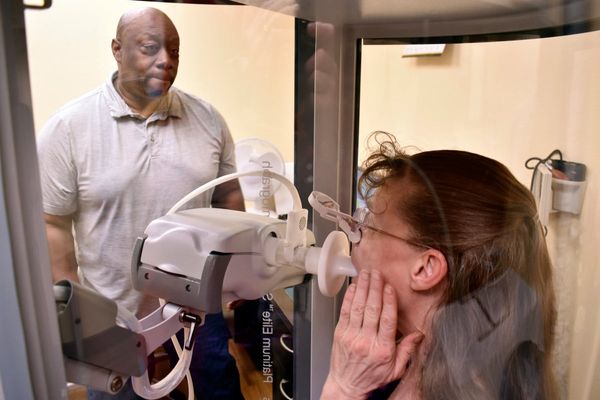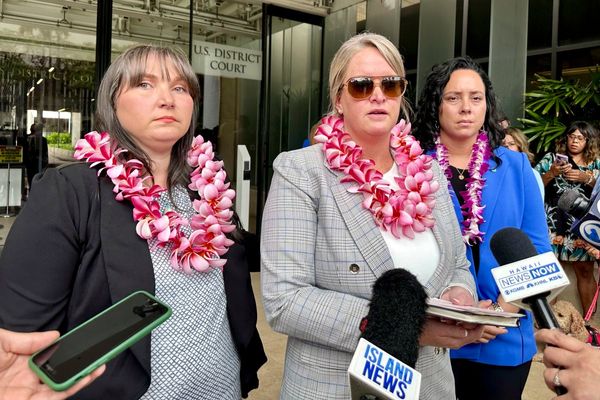
Environmental health inspectors are planning an urgent inspection of an asylum seekers’ centre in Cardiff because of concerns about serious and potentially dangerous overcrowding, the Guardian has learned.
Cardiff council has confirmed that it has received complaints of significant overcrowding at Lynx House in Cardiff. Residents have claimed that more than 11 people are having to sleep in one of the rooms.
The house is already the subject of controversy following revelations by the Guardian that the Home Office sub-contractor managing the accommodation was issuing its residents with brightly coloured wristbands in order to access food.
Some of the asylum seekers expressed fears that they were easily identifiable as a result of wearing the wristbands and had experienced harassment and abuse.
Within hours of the story breaking Clearsprings Ready Homes announced it was ending the coloured wristband system with immediate effect.
A spokesman for Cardiff council confirmed on Wednesday that an urgent inspection had been scheduled in response to concerns raised and as a result of photographic evidence provided by the Guardian.
The asylum seekers accommodated there claim that there are rooms housing 11 or more people, a few housing six or seven and the rest housing two, three or four people.
Footage from inside Lynx House shows bunk beds squeezed together with bags and belongings piled up in the limited remaining space. Photographs show the beds placed at 90 degrees to each other with part of one set blocked by the other.
A Cardiff council spokesman said: “We have received a complaint from an occupier about the condition of theses premises but no specific detail was given by the complainant on what was wrong. Following further intelligence received, a further inspection has already been scheduled.”
The council spokesman confirmed that it was investigating alleged problems of overcrowding in several other Clearsprings properties in Cardiff.

“The fire service has raised concerns about overcrowding in some of these properties with us,” said the spokesman. “We are investigating.”
It is understood that if the council finds that Lynx House is unlawfully overcrowded when it inspects, some of the asylum seekers will have to be moved out and alternative accommodation found for them. Where a council finds overcrowding it serves a notice to improve matters. If the notice is not complied with it will pursue a prosecution against the owner of the property.
Lynx House is part of Home Office initial accommodation where newly arrived asylum seekers are placed. They do not receive money or a card to be used in supermarkets but instead are provided with three basic meals a day. At other initial accommodation facilities used by the Home Office such as Heathrow Lodge near Heathrow airport and Brigstock House and Barry House in south London, many of the rooms have two beds in them. Some of the asylum seekers at Lynx House who have spent time in some of these facilities say the conditions are better there than at Lynx House.
One resident said: “This is a very difficult place to live. Many people have escaped from very bad situations and do not speak each other’s languages or speak English. It is very hard when so many people who are suffering from stress and depression are sharing a room together.”
Eric Ngalle, who spent time in Lynx House a few months ago, condemned the overcrowding. “The conditions there are very congested. No sane person can live in these conditions. People of all different ages and backgrounds are packed in together and sometimes there are conflicts,” he said.
Alison Sutherland, district peace officer for Rotary Southern Wales, said that she was working with many of the asylum seekers in Lynx House and praised the voluntary work they have been doing with Rotary, cleaning up litter along the main road outside Lynx House and helping to plant crocuses in schools to raise money for a polio charity.
“Rotary is more than willing to be a mediator between the asylum seekers and the staff at Lynx House. There are some faults and perhaps some alternatives could be found that would be beneficial to everybody,” she said on Wednesday.
When asked if there had been any breaches of Clearsprings Ready Homes contract with the Home Office at Lynx House neither the Home Office nor Clearsprings would confirm or deny this.
A Clearsprings Ready Homes spokesman said: “The UK has, over recent months, seen a larger population of asylum seekers. In turn volumes of people in initial accommodation sites, including Cardiff increased quickly.
“Clearsprings has taken steps, agreed with the Home Office to increase capacity in line with this demand in the form of additional self-catering accommodation.”
He added: “As well as being subject to regular Home Office inspections we are contractually required to undertake stringent monthly inspections of the initial accommodation provision and rectify any defects within contractual timescales.”
A Home Office spokesman said: “Lynx House, like all asylum accommodation, is inspected by the Home Office on a regular basis and performance standards assessed against all contractual requirements. Where a contractor is found to be falling short of these standards, we work with them to ensure issues are quickly addressed. Where they are not we can impose sanctions.”
When asked a second time about claims of overcrowding in Lynx House a spokesman for Clearsprings Ready Homes would not comment.
In February 2014 Serco, G4S and Clearsprings were all criticised by parliament’s powerful public accounts committee over their management of their asylum seeker housing contracts. MPs criticised all three companies for failing to check their properties properly and cited asylum seekers’ accounts of “hellish conditions”.
In accounts to January 2015 filed by Clearsprings Ready Homes the company states that it operates five-year contracts with the Home Office for the provision of transport, accommodation and support to asylum seekers in Wales and the south of England. The accounts state that current contracts continue until 2017 and “may be extended”. They say they are accommodating an average number of 5,481 asylum seekers each year with an average monthly number of 65 people employed. The company’s turnover was £28.7m but the profit after tax was £830,972.







